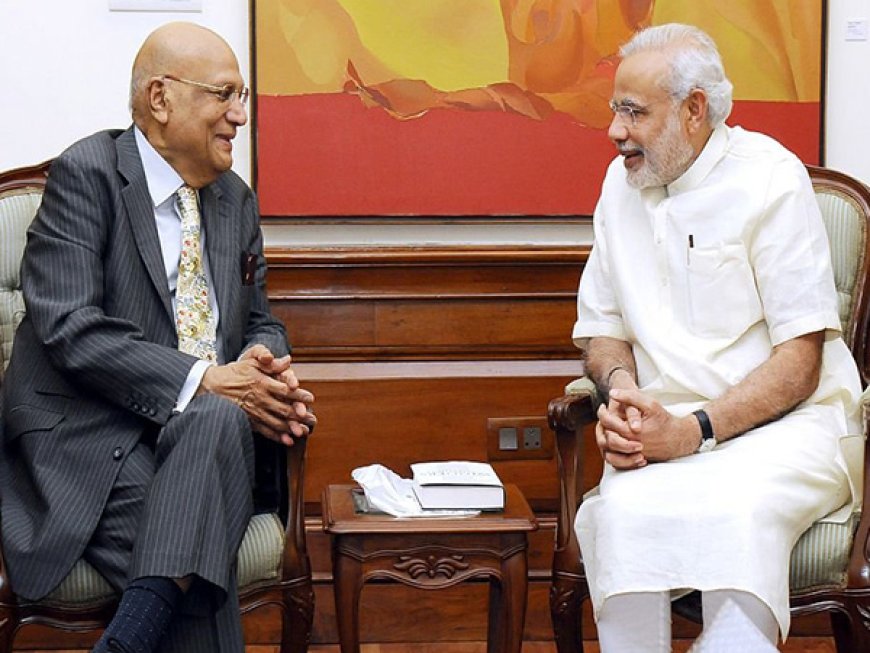Legendary Industrialist Lord Swaraj Paul Dies at 94
Legendary industrialist & philanthropist Lord Swaraj Paul passes away at 94. A visionary leader, education supporter & global icon.

Introduction
The world of business and philanthropy lost a towering figure with the passing of Lord Swaraj Paul, a legendary industrialist and philanthropist, who died at the age of 94. Known not just for his entrepreneurial success but also for his humanitarian work, he leaves behind an extraordinary legacy that spanned continents, industries, and communities. His contributions to business, education, and charity made him one of the most respected Indian-origin leaders in the UK and across the globe.
Early Life and History
Lord Swaraj Paul was born in 1931 in Jalandhar, Punjab, India, into a modest family. After completing his early education in India, he pursued higher studies in mechanical engineering and later obtained advanced education in the United States at the Massachusetts Institute of Technology (MIT). His early life was marked by challenges, but he carried resilience and determination that later shaped his journey as a global industrialist.
In the 1960s, he moved to the UK, where he laid the foundation of the Caparo Group, a steel and engineering conglomerate that became one of the UK’s most prominent industrial enterprises. Starting small, he transformed it into a business empire employing thousands and contributing significantly to the UK economy.
Cause of Death and Health Concerns
Lord Paul’s passing at 94 was attributed to age-related health complications. While there were no sudden or dramatic circumstances, his deteriorating health in recent years had been a concern. His peaceful passing marks the end of an era for global Indian entrepreneurship.
Contributions and Work
-
Industrial Leadership – Through Caparo Group, Lord Paul revitalized the steel industry in the UK during times of crisis.
-
Political Influence – He was made a life peer in the House of Lords in 1996, where he played a significant role in strengthening UK-India relations.
-
Philanthropy – Deeply moved by the loss of his daughter, Ambika, to leukemia, Lord Paul became a lifelong supporter of children’s health initiatives. The Ambika Paul Foundation was established to support healthcare and educational institutions.
-
Education – He donated generously to universities such as the University of Wolverhampton, University College London, and others, ensuring future generations had access to quality education.
Importance and Significance
Lord Swaraj Paul’s life was a symbol of determination, resilience, and generosity. He not only built a successful empire but also used his influence and wealth to uplift society. His work strengthened India’s image abroad and created bridges between the East and the West.
Advantages and Positives
-
Strengthened Indo-UK economic ties.
-
Created thousands of jobs through his industrial ventures.
-
Contributed millions to health and education.
-
Served as an inspiration for entrepreneurs of Indian origin worldwide.
Disadvantages and Negatives
-
His business empire faced challenges in later years, including market downturns and restructuring of the Caparo Group.
-
Critics argued that his strong political connections sometimes overshadowed his industrial achievements.
Final Thoughts and Conclusion
Lord Swaraj Paul’s passing is not just the loss of an industrialist but of a humanitarian who devoted his life to bettering society. His journey from Jalandhar to the UK House of Lords epitomizes the success of perseverance, hard work, and vision. While his absence will be deeply felt, his legacy will continue to inspire entrepreneurs, leaders, and philanthropists across the globe.
In conclusion, Lord Swaraj Paul was more than an industrialist; he was a bridge-builder, a philanthropist, and a symbol of hope for countless individuals. His life story reminds us that true success is not just about wealth, but about how much we give back to society.

 Ellofacts
Ellofacts 





